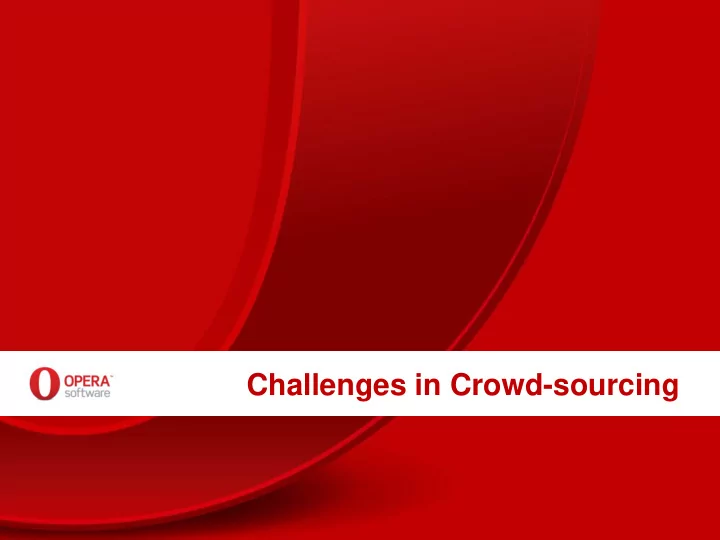

Challenges in Crowd-sourcing
The positive side of things • 150+ active volunteer translators in over 40 languages • Over 2 million words translated for all Opera products, including browsers, web-sites and -applications • Working both off-line and collaboratively on the web www.opera.com
Caveat • Crowd sourcing is not free, nor effortless • Check your applicants • A large crowd is not necessarily a good crowd • Crowd sourcing should only be used for certain tasks • Crowd sourcing should not be used for time critical tasks www.opera.com
Protect your assets, teach your crowd • Start small • Put your crowd under embargo/NDA • Appoint at least one contact person per language • Teach your crowd your branding guidelines • Teach your crowd your terminology www.opera.com
What we did • Our applications use GNU gettext (PO) • www.opera.com uses XLIFF • Separate content from layout. • Discovered that Open Source is not Open Standards www.opera.com
Tools we used • gettext and po4a • Transifex • Translate Toolkit with Pootle and Virtaal • Homebrew applications to bridge the vast gaps www.opera.com
Right-to-Left • Semantic markup is key • Proper CSS • Write a separate RTL-stylesheet to negate RTL-challenged CSS • Every time you float:left a kitten dies • Every time you padding:left without a right, another one • Why won’t anyone think of the kittens? • Test in all browsers and on all platforms (1998 anyone) www.opera.com
www.opera.com www.opera.com
Recommend
More recommend